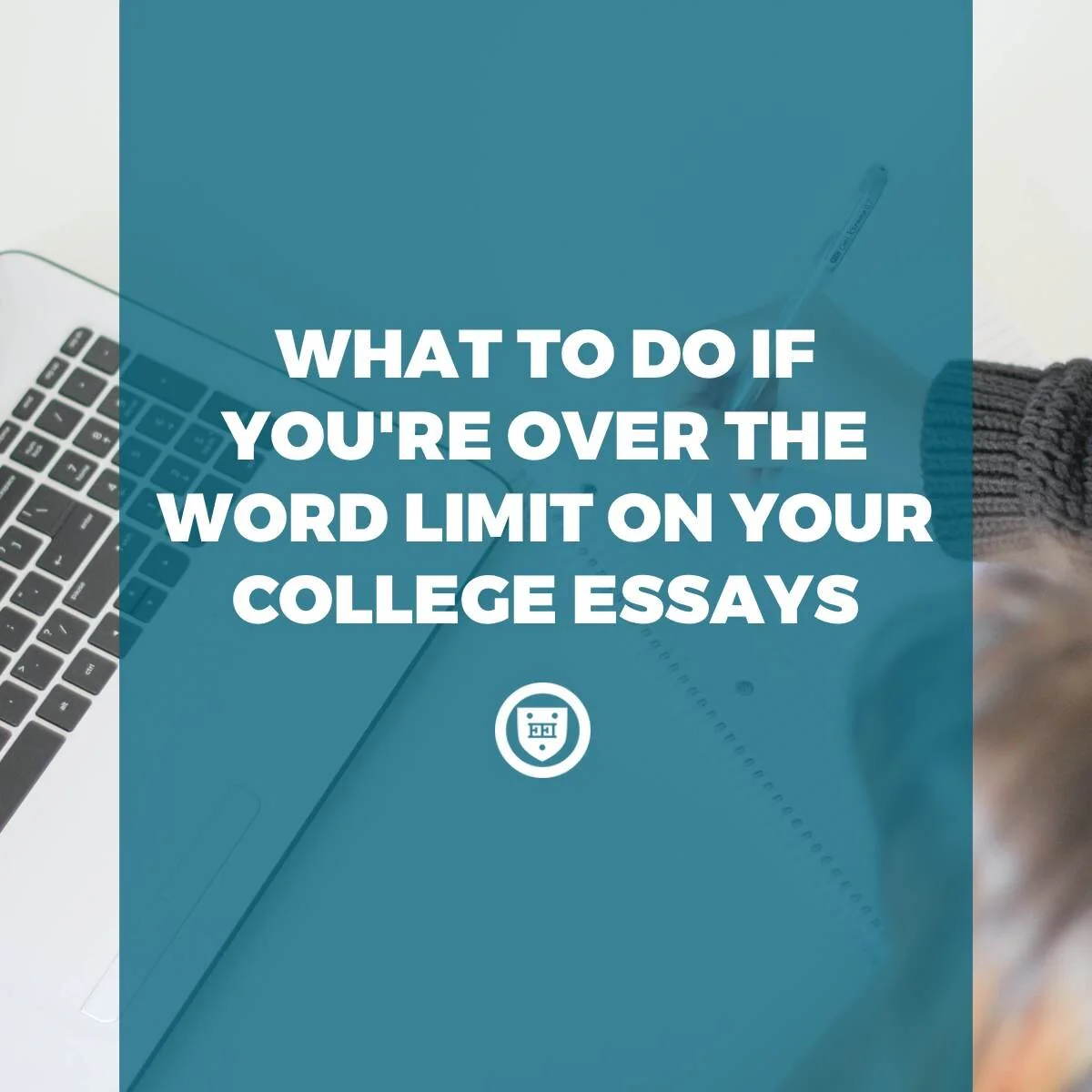What to Do If You're Over the Word Limit on Your Admissions Essays
Being over the word limit on your college essay is a great problem to have. All writing requires revision, and almost all revision entails condensing. Your aim in cutting down an admission essay is to say as much as possible with as few words as possible.
Whatever you do, don’t try to game the system by hyphenating a ton of words (“My-story-begins-in-2002…”) or using white underscores. There’s a good chance that the software will truncate your essay despite these tactics.
When trimming away, keep in mind that your readers don’t have the time or energy to read carefully. You need to respect your reader’s time—don’t drone on unnecessarily, and always ask yourself if you could say the same thing with fewer words.
Here are some strategies for condensing:
1. Revise the Passive Voice
You may have heard at some point to avoid the passive voice. Or maybe, if your teacher put things more simply, you were told to avoid “to be” verbs altogether. There are smart and meaningful uses of the passive voice, but one of its primary drawbacks is that it usually produces more words than the active voice.
Consider these examples:
Passive: Ice cream was eaten by everyone in my family.
Active: Everyone in my family ate ice cream.
Passive: Hard work has been proven to be much more important than natural talent by researchers.
Active: Researchers have proven that hard work is much more important than natural talent.
The active sentences are more concise and more direct. An easy way to spot the passive voice is to look for “by” phrases (though that’s no guarantee a sentence is passive, and not all passive sentences use “by” phrases). A more exacting method is to locate unnecessary “to be” verbs (such as “was” in sentence 1 and “has been” in sentence 2.
In general, place the subject of the sentence at the beginning (“Everyone” and “Researchers”) and you’re likely to avoid the awkwardness and wordiness that we often find in the passive voice.
2. Minimize Background Information
When I write, I often feel the urge to write so much before I get to the heart of the matter. “How can my reader understand what I need to say until I tell them all this background information first?” Fight that impulse as much as possible. Background information tries your readers’ patience.
Consider the opening of this essay by Alison Hess, who recently gained admission to the University of Chicago:
I always assumed my father wished I had been born a boy.
Now, please don’t assume that my father is some rampant rural sexist. The fact is, when you live in an area and have a career where success is largely determined by your ability to provide and maintain nearly insurmountable feats of physical labor, you typically prefer a person with a bigger frame.
When I was younger, I liked green tractors better than red tractors because that was what my father drove, and I preferred black and white cows over brown ones because those were the kind he raised.
The writer leaps directly into the primary conflict of her essay, then zooms out briefly to explain its rural context, then zooms back into concrete images from her childhood. The essay keeps us locked into a sequence of revealing moments and images that fuel the writer’s reflection on gender identity and farming (it’s a fascinating piece—go read it!).
3. Are You Sure You Need All of those Adjectives and Adverbs?
Many really smart and talented high school students write sentences like this one, believing that maximum description is always best:
I quizzically wandered through the long, hollow, silent hallway, hopelessly wondering where my extremely alacritous dog was hiding.
If you’re this kind of writer, try to channel that passion for words more selectively. Consider this revision:
I wandered through the quiet hallway, wondering where my dog was hiding.
This is a fine sentence. In fact, it’s better than the first because it is not filled with distracting details. Whenever you add adverbs and adjectives, you deepen your description of nouns, which is a great strategy only when used selectively.
Always ask yourself: what work is the adjective/adverb doing?
Only include those descriptors that help your reader learn essential information directly related to the argument you’re building in your essay.
More generally, beware of intensifying words such as “extremely,” “very,” and “really,” which usually just dilute sentences.
Here are some other quick tips on condensing:
4. Use Contractions and Abbreviations
For your college admission essays, “don’t” is just as good as “do not” and “the US” is a fine substitute for “the United States of America.”
5. Avoid Repetitions and Reiterations
Really want to get a point across? Don’t repeat it—you don’t have space. Write it once and write it well. Consider making it into a one-sentence paragraph like the one that opens Alison Hess’s essay.
6. Ask For Help
It can be very difficult, sometimes impossible, to trim down your own work. Ask a friend or a teacher for help. Sometimes another set of eyes are necessary for you to see that that one sentence you thought was just so clever was actually not all that great or necessary.
One last tip: save everything! Your words are precious jewels. When you discard them from one document, make sure to save them somewhere else. They just might need to make their way back into the final version.
Stephen P. is a writer and teacher based in Los Angeles. He has taught literature and writing courses at several universities and has taught writing and reading at Elite Prep Los Angeles since 2010.


